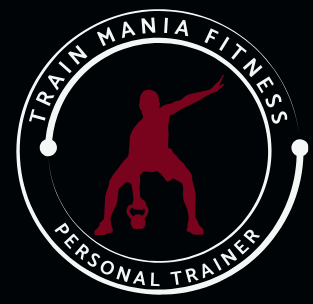Your Fitness Journey Starts Here at Train Mania Fitness | Start Your Transformation
Menopause Fitness &
Perimenopause Fitness


Training for Women in Perimenopause and Menopause
Balance your hormones, strengthen your body, and boost your confidence—through tailored in-person or online training.
Perimenopause marks the transitional phase leading up to menopause, when estrogen and progesterone levels begin to decline. This change can start as early as your 30s or 40s and brings a range of physical and emotional symptoms, including hot flashes, fatigue, sleep disturbances, mood changes, and shifts in motivation.
Menopause follows this stage and typically occurs between ages 45 and 55, marking the end of menstrual cycles. During this period, women often experience changes in body composition—such as increased abdominal fat and loss of muscle mass—as well as reduced bone density and strength.
Why Exercise Matters During This Stage
Regular exercise plays a key role in managing the symptoms and long-term effects of hormonal changes. Movement helps regulate mood, support bone health, improve sleep, and prevent muscle and strength loss.
At this stage of life, your training should focus on a combination of:
Strength Training – to combat muscle loss, support bone density, and enhance daily function.
Cardiovascular Training – to promote heart health, regulate weight, and improve energy.
Mobility, Flexibility, and Balance Work – to reduce joint pain, prevent injury, and maintain independence.
Common Benefits of a Consistent Training Routine
Improved mood and energy levels
Reduced hot flashes and better sleep
Enhanced muscle tone and metabolism
Stronger bones and joints
Increased confidence and body awareness
Personalized Coaching for Every Phase
Whether you’re training in person at Fitness 48 in Paradise Valley, AZ or online through my Fitness App, every program is tailored to your unique needs, symptoms, and goals.
Together, we’ll design a plan that fits your lifestyle — focusing on progressive strength training, balanced nutrition, and long-term habits that help you feel strong, healthy, and confident through every phase of life.
As a certified trainer and nutrition coach, I also guide you in making better nutritional choices that support hormone balance, bone health, and weight management. With personalized support and ongoing accountability, you’ll build consistency and results that last.
Start Feeling Your Best — Inside and Out
You don’t have to go through this transition alone.
Train Mania Fitness offers customized in-person and online training to help women in perimenopause and menopause regain strength, confidence, and balance.
👉 Start your journey today — book a consultation and let’s build a plan designed for you.
Is menopause making you feel unlike yourself? You don’t have to face it alone. As your personal trainer, I’ll help you regain strength, balance, and confidence—inside and out.
Personalized in-person and online personal training in Paradise Valley, AZ — fitness and nutrition coaching for real, lasting results.
© 2024. Train Mania Fitness | All Rights Reserved


